Search
Summary 
Loading AI-generated summary based on World History Encyclopedia articles ...
Search Results

Article
The Propaganda of Octavian and Mark Antony's Civil War
Propaganda played an important role in Octavian (l. 63 BCE - 14 CE) and Mark Antony's (l. 83 – 30 BCE) civil war, and once victorious at the Battle of Actium (31 BCE), Octavian returned home to become the first Roman emperor. The decade preceding...

Image
Propaganda Picture of a Shirtless Mussolini
A photograph of Benito Mussolini (1883-1945), leader of Fascist Italy, taken during the so-called "battle for wheat", a propaganda campaign launched in 1925 for self-sufficiency in wheat production
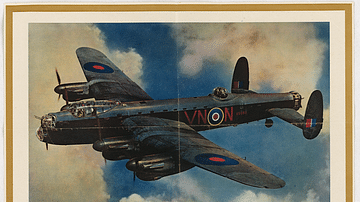
Image
Lancaster Bomber Propaganda Poster
A Second World War (1939-45) propaganda poster produced by the British Office of War Information showing an Avro Lancaster bomber. (National Archives at College Park)
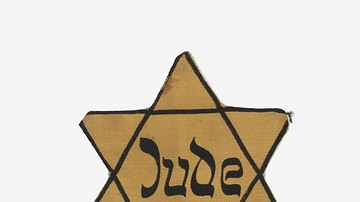
Article
Why Did Hitler Hate Jewish People?
The leader of Nazi Germany Adolf Hitler (1889-1945) identified Jewish people as enemies of the state, presenting them through relentless propaganda as responsible for Germany's economic and cultural decline. Basing this propaganda on White...
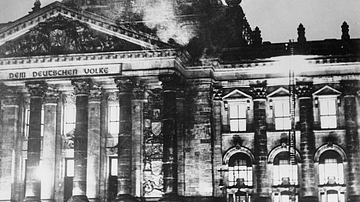
Definition
Reichstag Fire
The Reichstag fire of 27 February 1933 was a possible arson attack on the German parliament building. The fire was blamed on a communist anarchist Marinus van der Lubbe (1909-1934), but it may have been the work of the Nazi party's paramilitary...

Article
Why Was Fascism Obsessed With Sports?
Can physical education be part of a totalitarian project to control and reshape the masses? Both the leader of Fascist Italy, Benito Mussolini (1883-1945), and the leader of Nazi Germany, Adolf Hitler (1889-1945), believed that sports could...
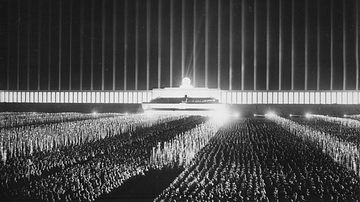
Definition
Nuremberg Rally
The Nuremberg Rally, or the Reich Party Congress, was an annual event held from 1927 to 1938 in Nürnberg, Germany. Organised on a massive scale by the National Socialist Party (Nazi), these operations in pomp, ceremony, and propaganda were...
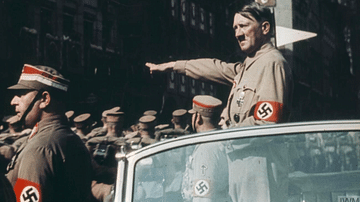
Article
How Did Hitler Rise to Power?
The rise of Adolf Hitler (1889-1945), the Nazi dictator of Germany from 1933, was enabled by those already in power eager to take advantage of his popularity. Hitler promised to make Germany great again after the humiliation of WWI by restoring...

Article
Sources of History
History (from the Greek ἱστορία, meaning 'a learning or knowing by inquiry') can be broadly taken to indicate the past in general but is usually defined as the study of the past from the point at which there were written sources onwards...
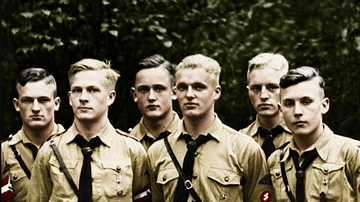
Definition
Hitler Youth
The Hitler Youth (Hitlerjugend or HJ), named after the leader of the German Nazi Party Adolf Hitler (1889-1945), was designed to indoctrinate 14-18 year-old boys into the party's way of thinking. Its activities promoted physical exercise...